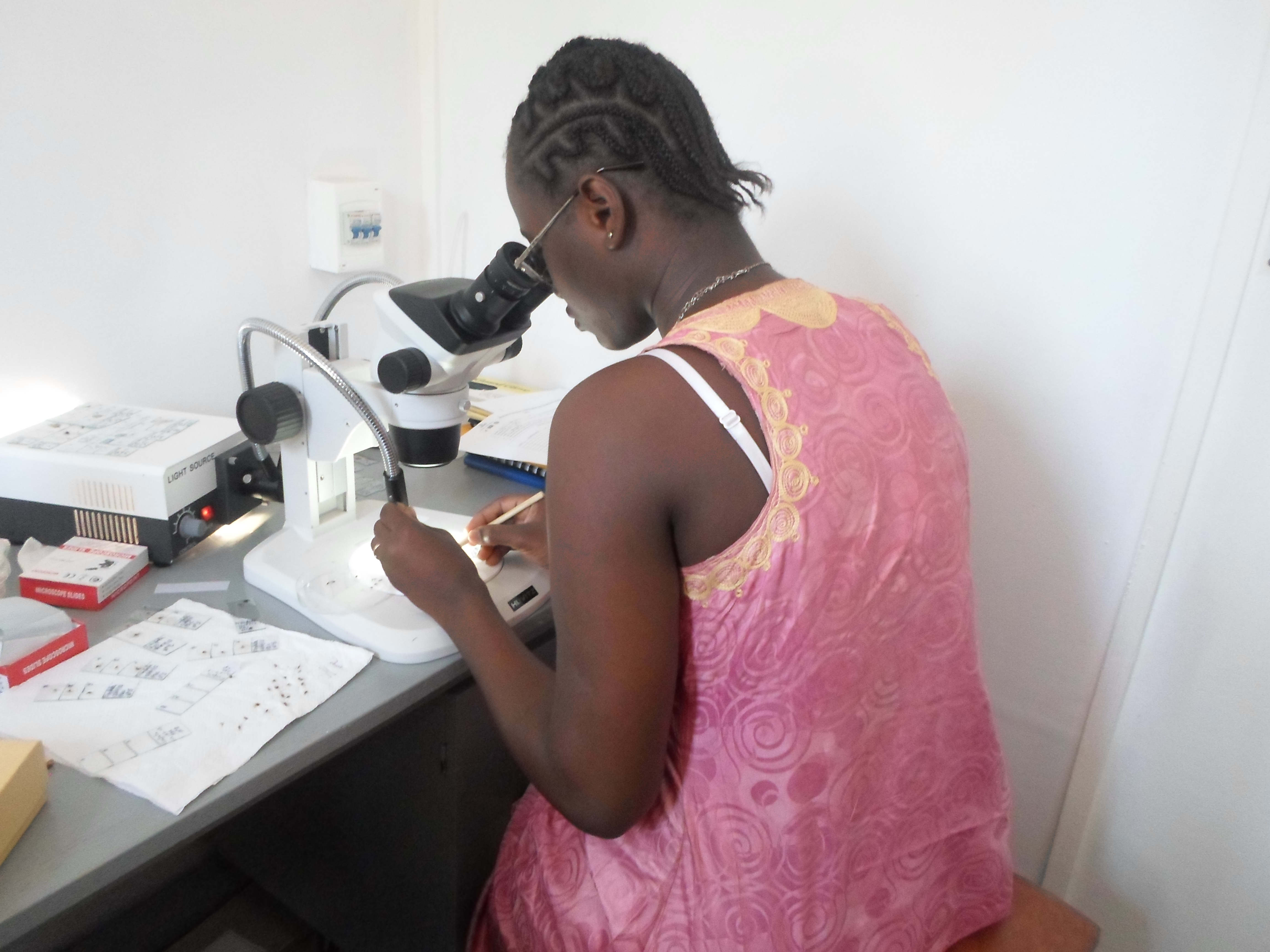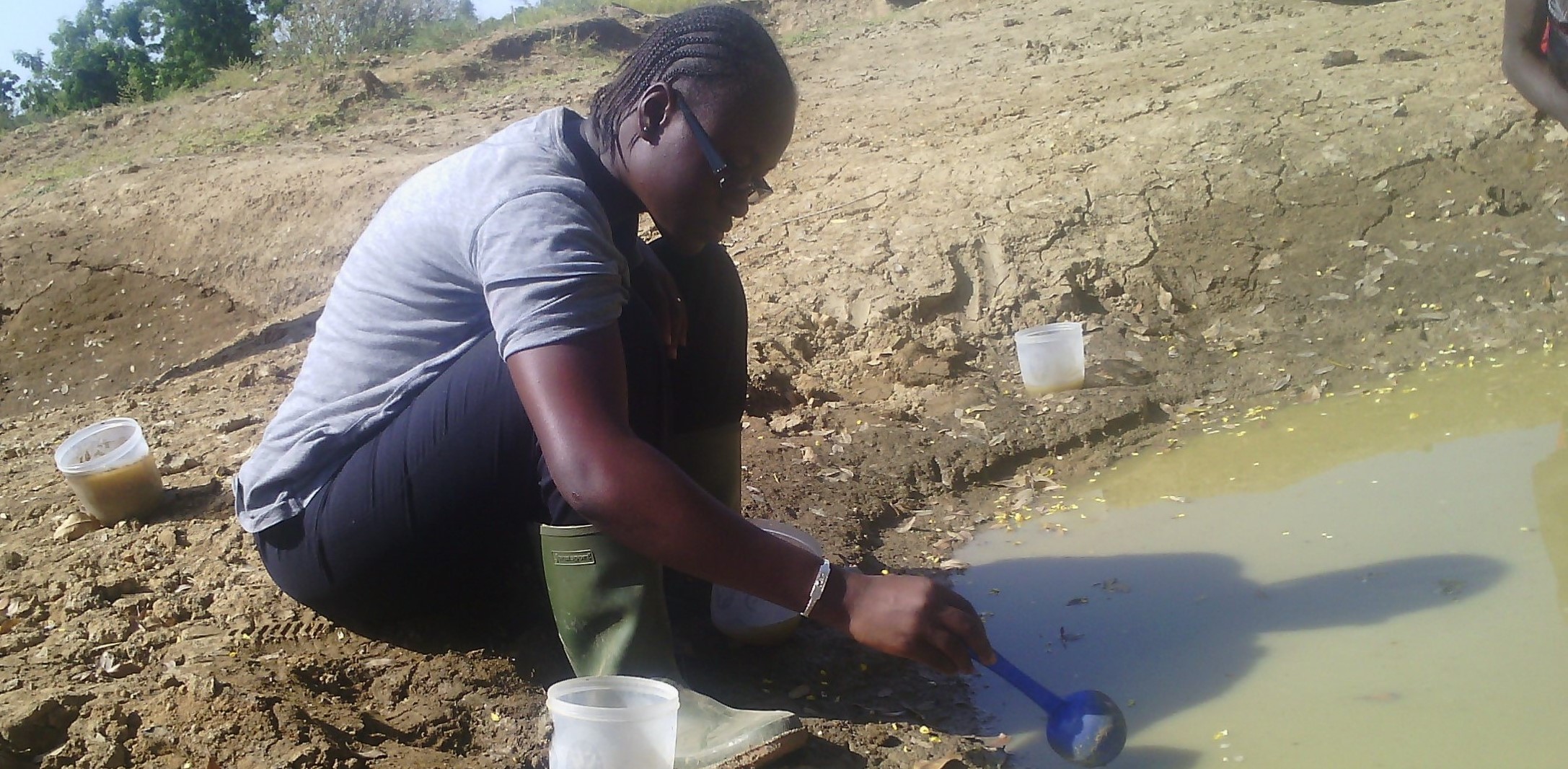Mali
Therese Dembele has been the entomology data manager for the U.S. President’s Malaria Initiative (PMI) VectorLink Project in Mali since 2020. She is of Malian origin, and is a member of the Bwa community. She has a Master’s degree in Bacteriology-Virology from the Catholic University of West Africa, University Unit of Bobo in Burkina Faso. Therese is no stranger to malaria having contracted the disease several times with the last time being in 2017. As a woman in science, Therese took time to share her experience in entomology and monitoring and evaluation (M&E) with us.
What is your role in malaria prevention and control with the PMI VectorLink project?
I am in charge of entomological data management for the PMI VectorLink Mali Project. I started as an entomological technician in 2012 under the PMI Africa IRS (AIRS) Mali Project, then I participated in the long-lasting insecticide-treated nets (LLIN) study as a supervisor in 2013. In 2016, I shifted my focus to complete a master’s degree in bacteriology-virology, and rejoined the VectorLink team in July 2018 as a part-time entomological data entry agent. I was promoted in March 2020 to entomology data manager.
My daily work consists of verifying and validating, with the Lead entomologist, the entomological data collection forms from the field, recording the data, cleaning and ensuring quality control of the recorded data, preparing samples of Anopheles gambiae s.l. mosquitoes and delivering them to the Applied Molecular Biology Laboratory (LBMA) for analysis, and assisting the Lead entomologist in the preparation of reports.
How has the incidence of malaria changed since the beginning of the project?
In the project’s IRS intervention area (Mopti region), the malaria parasite prevalence was 60% compared to the national average of 30%. Between 2017 and 2021, parasite prevalence has dropped from 60% to about 25% in the Mopti region.
How does the project innovate and lead in entomological data collection?
The implementation of the VectorLink Collect data platform is an innovation in terms of entomological data collection. The project currently uses paper data collection forms, but plans to start the collection of data from smartphones and tablets with the open data collect (ODK) software, a tool for collecting data using android mobile devices and sending it to an online server this year. VectorLink Collect/DHIS2 has allowed us to obtain quality data while staying organized. From our experience, simultaneous use of previous tools such as Excel-Access, Excel-DMS or even Excel-VL collection is less efficient in terms of the quality of data.

How does the project share entomological data with local partners?
Data is shared with local partners through reports and workshops. For example, the addition of piperonyl-butoxide (PBO), a synergist, improves the effectiveness of pyrethroid nets, prompting interest in new types of mosquito nets. The data collected is critical to decision-making on choices like site selection, distribution and type of ITNs, and insecticides for IRS.
How has gender equity been addressed in the project?
Efforts such as the encouragement of female candidates when recruiting technicians and local mosquito collectors are made daily to increase women’s participation in project activities. The field activities coordinator in particular motivates women to participate in field activities. However, this often comes up against the cultural beliefs of the area. The project supports equity and inclusion, but it is very difficult to get women to work, especially at night for reasons such as pregnancy and family constraints.
What advice do you have for women who wish to pursue work in data management or entomology?
I would urge women to have confidence in themselves and not underestimate their abilities to deliver very good results and to excel in this field. Personally, during my university education I was not among the best in biostatistics, but I believed that I could succeed in this field and have gained the required skills.
In what ways can women get involved in M&E in Mali?
Women who have the same experience as I do need to communicate and sensitize the women in their lives such as family members and friends about the possibilities for success in M&E. We need to promote women in this area through network discussion groups for example. Discussion groups allow women to express themselves freely most of the time. They share challenges, which allow them to help others with their experience and advice.
What does it mean to you to be a woman working in entomology?
Working in entomology as a woman is a way for me to show that I am capable of doing this work as much as a man, and I can be an effective field agent. Through me, I want women in Mali and elsewhere to be aware of their ability to excel in this field.


